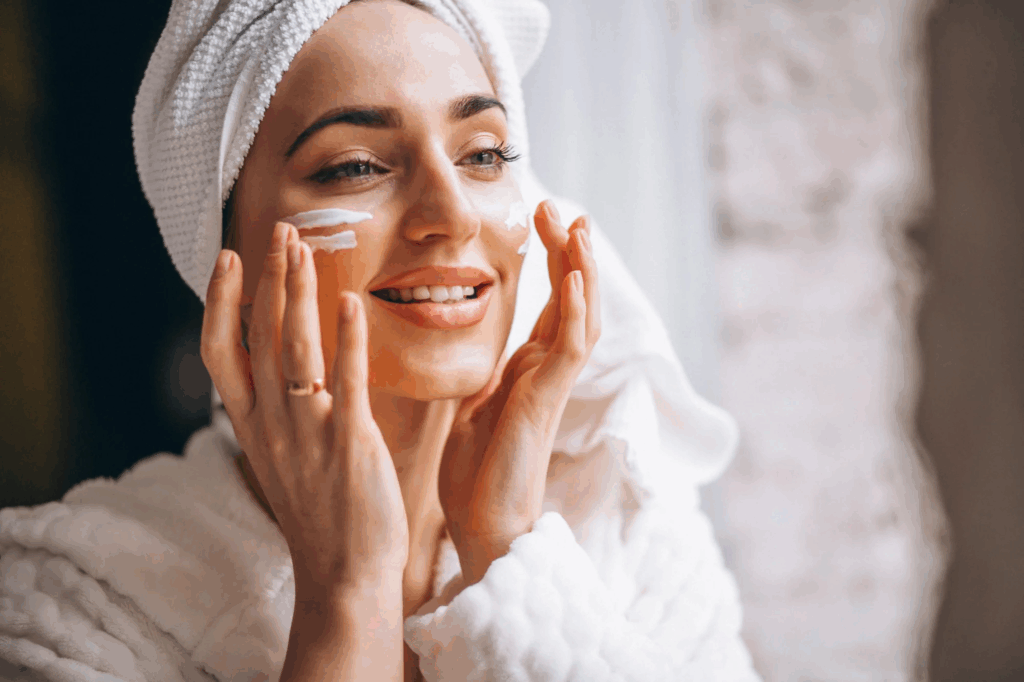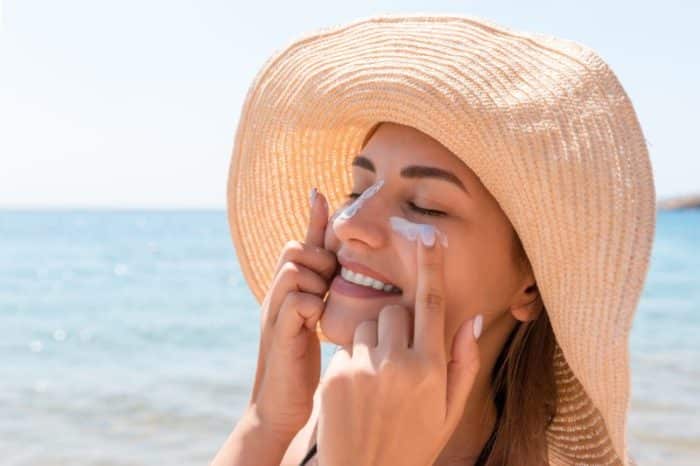Sunscreen might seem like a beach-day staple, but its real power lies in long-term skin protection. Daily use of sunscreen doesn’t just fend off sunburn—it significantly shields your skin from premature Aging caused by UV radiation. Over time, exposure to UVA and UVB rays can lead to fine lines, dark spots, rough texture, and even serious skin conditions.
Let’s explore five powerful anti-aging benefits of using sunscreen every day—and why this single step might be the best thing you can do for youthful, resilient skin.
Why Daily Sunscreen Use Truly Matters

Sun exposure is the number one external cause of premature skin Aging, a process often called photoaging. Even when you’re not directly sunbathing—like walking to your car or sitting near a window—UV rays are at work damaging your skin’s deeper layers.
Sunscreen acts like a barrier, absorbing or reflecting those rays before they cause harm. This simple habit becomes your skin’s first line of defense in maintaining elasticity, clarity, and smoothness.
1. Reduces the Formation of Fine Lines and Wrinkles
One of the most well-documented effects of UV exposure is the breakdown of collagen and elastin, the proteins that keep your skin firm and plump. UVA rays, in particular, penetrate deeply and disrupt the skin’s internal scaffolding, leading to visible wrinkles.
Using sunscreen daily helps protect against this collagen loss, preserving the skin’s structural integrity and slowing down wrinkle formation. According to The Skin Cancer Foundation, consistent sunscreen use has been shown to reduce signs of skin aging by 24% over four years.
2. Prevents Hyperpigmentation and Uneven Skin Tone
UV exposure stimulates melanin production, which can lead to dark spots, melasma, and uneven pigmentation as you age. Sunscreen limits this process, preventing sun-induced discoloration before it starts.
For those who’ve had treatments like peels or lasers, daily protection is even more crucial. As Harvard Health Publishing points out, sun exposure post-treatment can worsen pigmentation and hinder healing. Sunscreen ensures your skin heals evenly and retains its brightness.
3. Preserves Skin Texture and Elasticity
Beyond wrinkles and spots, UV rays can make your skin feel rough, dry, and leathery. This happens when oxidative stress and protein breakdown disrupt your skin’s natural texture.
Daily sunscreen use prevents this degradation and supports the skin’s natural moisture barrier, keeping it smooth and supple. As noted by American Academy of Dermatology, sun protection is a cornerstone of any effective anti-aging regimen and can help you avoid expensive corrective procedures later.
4. Lowers the Risk of Broken Capillaries and Redness
Chronic sun exposure can inflame the skin and damage tiny blood vessels beneath the surface, especially on the cheeks and nose. Over time, this results in visible capillaries, redness, and heightened skin sensitivity—making the skin look aged and irritated.
Sunscreen protects these delicate vessels, reducing inflammation and preventing long-term vascular damage. According to Cleveland Clinic, individuals with conditions like rosacea often see fewer flare-ups when sunscreen is applied consistently.
5. Reduces the Risk of Skin Cancer and Related Skin Damage
While often not discussed in an anti-aging context, skin cancer prevention is crucial to maintaining healthy, youthful skin. Treatments for skin cancers—especially facial ones—can lead to scarring, pigmentation issues, and changes in skin texture.
Daily sunscreen use drastically reduces the risk of developing conditions like basal cell carcinoma or melanoma, helping preserve both your health and appearance. Prevention is far easier (and cheaper) than dealing with cosmetic or medical complications later.
Choosing the Right Sunscreen for Daily Use
- Go Broad-Spectrum: Ensure your sunscreen protects against both UVA (aging) and UVB (burning) rays.
- Aim for SPF 30 or Higher: Dermatologists recommend a minimum SPF of 30 for everyday use.
- Pick Your Formula: Gel-based or mineral sunscreens suit oily or sensitive skin, while creams work well for dry types.
- Reapply When Necessary: Especially after sweating, swimming, or extended outdoor time.
Tips to Make Sunscreen a Daily Habit
- Apply as the last step in your morning skincare routine
- Use at least a quarter teaspoon for your face and neck
- Don’t forget ears, lips, eyelids, and the backs of your hands
- Choose lightweight products you enjoy using so it feels less like a chore
With consistency, sunscreen becomes more than protection—it becomes a silent guardian of youthful skin.
Conclusion
The anti-aging benefits of sunscreen aren’t just cosmetic—they’re foundational to healthy skin. From protecting collagen to preventing discoloration and cancer, sunscreen does what few skincare products can: it prevents problems before they start.
Also Read : Skincare Routines That Work for People with ADHD: Simple & Effective



